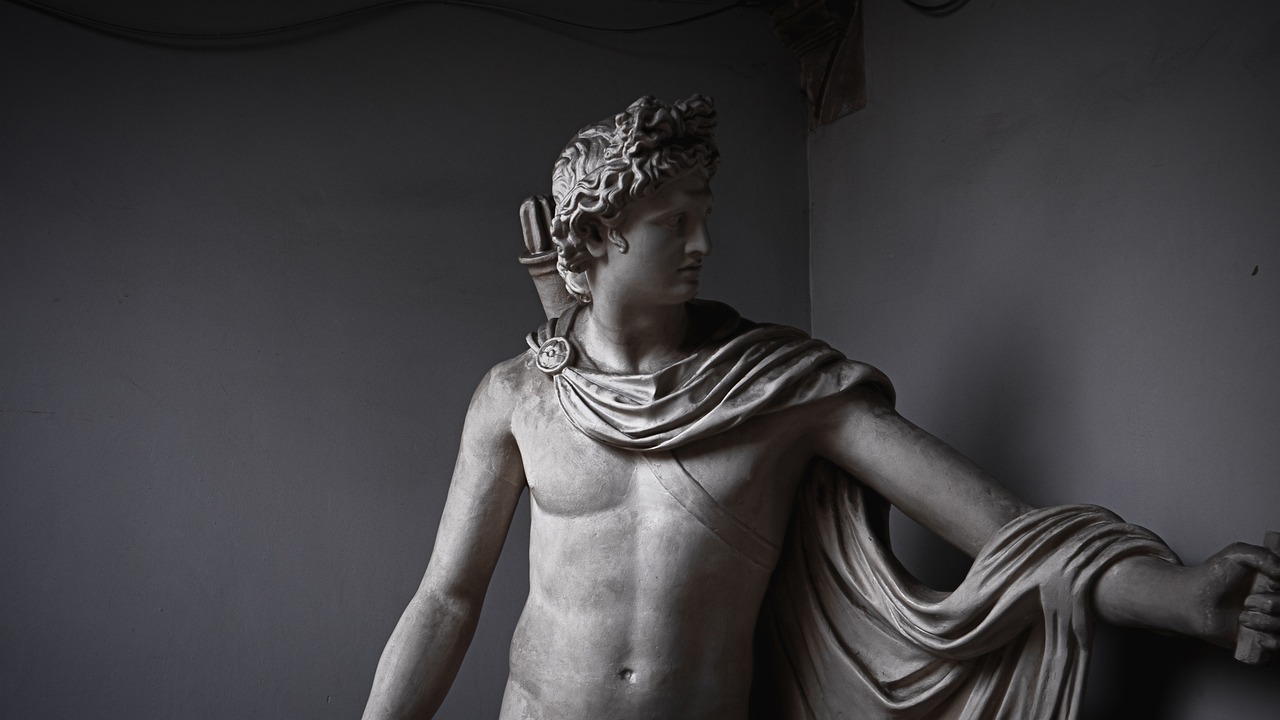Pluto, revered as the deity of the Underworld in Roman mythology, is often associated with his Greek counterpoint, Hades. Unlike other deities who inhabited Mount Olympus, Pluto opted to dwell in the Underworld, marking a distinction in his character and role among the pantheon.
Family Dynamics
Pluto, known as Hades, was the offspring of the Titans Saturn (Cronus) and Ops (Rhea), and the brother to the gods Jupiter (Zeus) and Neptune (Poseidon). After the defeat of the Titans, Jupiter ascended to take control of the heavens and distributed parts of his reign among his brothers. Jupiter ruled the skies, Neptune commanded the seas, while Pluto was granted authority over the Underworld, also referred to as Tartarus or the Infernal Region. In his dominion over the dead, he relied on Mercury (Hermes) to guide souls to their eternal resting place.
Despite his crucial role, Pluto was not just feared; he was largely reviled by mortals. He sat upon a dark throne beside his queen, Proserpina (Persephone), who was unwillingly married to him. After being abducted, Proserpina spent a portion of the year in the Underworld and the remainder on Earth, representing the duality of life and death. Ceres (Demeter), her mother, went to great lengths to find her daughter, learning from the river nymph Arethusa that Proserpina, though a queen of shadows, was plagued by sadness and fear.
Attributes and Persona
Pluto’s reputation was surrounded by dread; his mere name was seldom spoken aloud by mortals. He was feared as a figure who could snatch loved ones away, and he traveled in a gilded chariot drawn by four black horses, as noted by Ovid in his writings. Occasionally, he donned a helmet crafted by the Cyclops, which imparted the power of invisibility to its wearer. With either a scepter resembling a two-pronged fork or the keys to the Underworld in his possession, Pluto exuded a chilling authority.
Cerberus and Charon
While entering the Underworld was relatively simple, exiting was another matter entirely. The gatekeeper, Cerberus—an imposing three-headed canine—ensured that few could easily pass. However, there were exceptions, such as the goddess Juno, who, on a visit to consult the Furies, effortlessly crossed into the realm, as depicted by Ovid.
Once inside, a mortal spirit had to confront the river Styx, a dark waterway serving as a boundary between the living and the deceased. This river, one of the five that flow within the Underworld, was maintained by Charon, the disheveled ferryman. Souls desiring passage to the other side required an obolus, a coin placed beneath their tongue to ensure they weren’t left to wander for a century before being permitted to cross. The Styx, while foreboding, was paradoxically linked to invincibility, exemplified in the tale of Achilles.
Fate of Souls
Upon crossing the river, the souls faced judgment by three esteemed judges: Minos, Rhadamanthus, and Aeacus, who, with the help of Themis—the goddess of justice—evaluated their lives. Depending on the weight of their virtuous acts versus their sins, souls were directed either to the Elysian Fields, a paradise, or condemned to suffer eternal torment in Tartarus.
The Furies played a crucial role in ensuring that the sins of the guilty were recognized and punished. With their fearful appearance and merciless nature, they relentlessly pursued wrongdoers and facilitated their descent into the depths of Tartarus. The Fates, cousins of the Furies, determined the thread of life—its length and eventual end—sitting near Pluto’s throne, affecting the fates of all mortals.
The Gorgons and Their Sphere
The Gorgons, a trio of fearsome sisters—Stheno, Euryale, and Medusa—instilled terror with their monstrous presence. The mere sight of them could petrify individuals, rendering them stone. Medusa, the sole mortal among them, was ultimately slain by the hero Perseus.
Tartarus’ Legend
Tartarus housed infamous figures punished for their misdeeds. Tityus was chained and subjected to perpetual torment for his offense against Juno. Ixion was condemned to an ever-spinning wheel of flames for his inappropriate advances toward her. Meanwhile, Tantalus faced eternal thirst and hunger, forever denied the sustenance he craved. Lastly, Sisyphus was sentenced to roll a boulder uphill, only to see it roll back down each time he neared the summit.
In a profound tale of love, Orpheus ventured into the Underworld after the death of his beloved Eurydice, who succumbed to a snake’s venom. His enchanting music pacified Cerberus, and he was granted passage under the condition that he would not look back at Eurydice until they emerged in the light. Tragically, in a moment of doubt, he turned to gaze at her, resulting in her eternal return to the shadows.
Worship and Influence
While temples in Pluto’s honor were nonexistent, altars dedicated to him facilitated sacrificial practices, typically performed nocturnally. His presence in literature echoes through works such as Dante Alighieri’s Divine Comedy, where he governs part of Hell. The dwarf planet Pluto, which once held the title of the ninth planet, bears his name along with its moons, Charon, Styx, Nix, Kerberos, and Hydra.



